Iron is an essential biological component of all living organisms. In the human body, iron is one of the essential trace minerals. This article will provide all information about iron, including what is iron? uses, dosage, side effects, iron-rich foods.
Iron is an essential mineral commonly known for its role as a component of hemoglobin and its involvement in the transport of oxygen in the blood. In addition, what other roles does iron play in the body? What foods can we supplement iron with and does it have any side effects? Let’s find out through the following article.
1. What is iron?
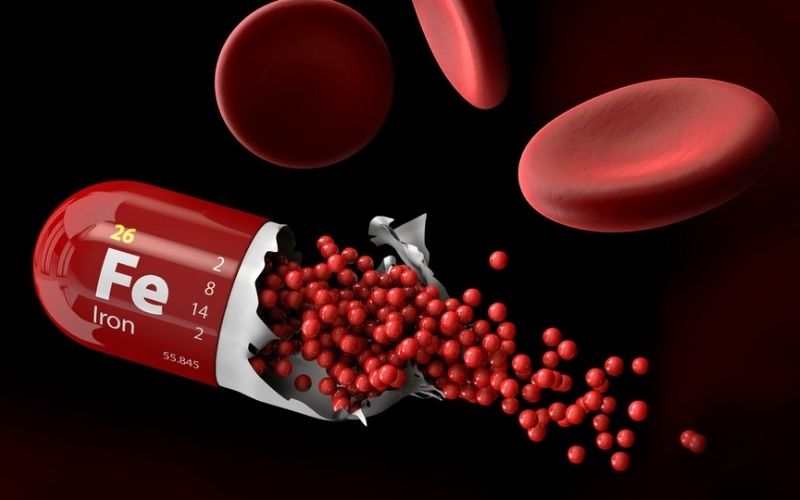
Iron is a trace element that is essential for the body.
Iron is an essential mineral for the body. Most of the iron in the body is found in the hemoglobin of red blood cells and in the myoglobin of muscle cells. Most of the remaining iron is stored as ferritin or hemosiderin (a degradation product of ferritin) in the liver, spleen and bone marrow.
Although the amount is not much, iron is one of the most important nutritional components, playing a vital role in life. Iron is necessary for the transport of oxygen and carbon dioxide. It also helps support the metabolism of healthy muscles and connective tissue. Iron is also necessary for physical growth, neurological development, cell function and the synthesis of some hormones.
We can supplement iron through foods such as meat, fish, tofu, beans, spinach, cereals and other foods.
2. What is the function of iron?
Iron helps keep red blood cells healthy
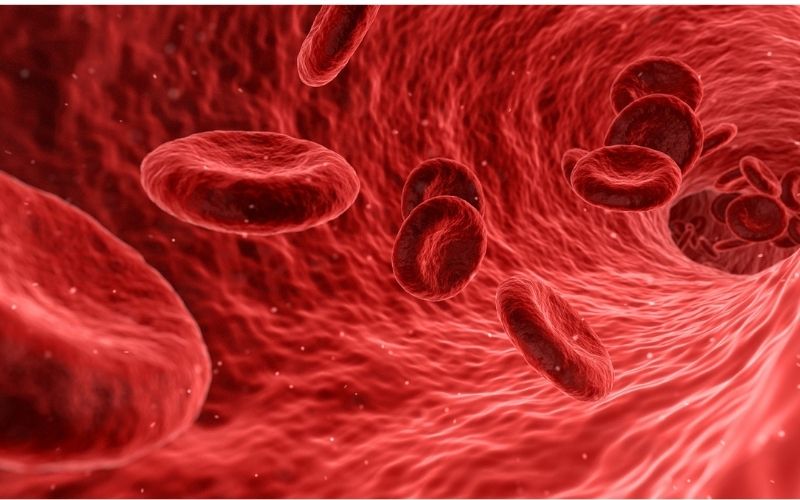
Iron is a major component of hemoglobin in red blood cells.
Iron is a major component of hemoglobin, an iron-rich protein that is the main component of red blood cells. Up to 70% of the iron in your body is found in red blood cells. And about a quarter of the cells in the human body are red blood cells, so iron is really important for healthy red blood cell development.
Iron deficiency can cause anemia, which is the most common type of anemia. When there is an iron deficiency, the body’s red blood cell production is disrupted or unhealthy red blood cells are created, leading to a decrease in hemoglobin levels in the blood. Iron deficiency anemia can make a person feel tired, have pale skin, and be more susceptible to illness.
Iron helps the muscular system develop healthily
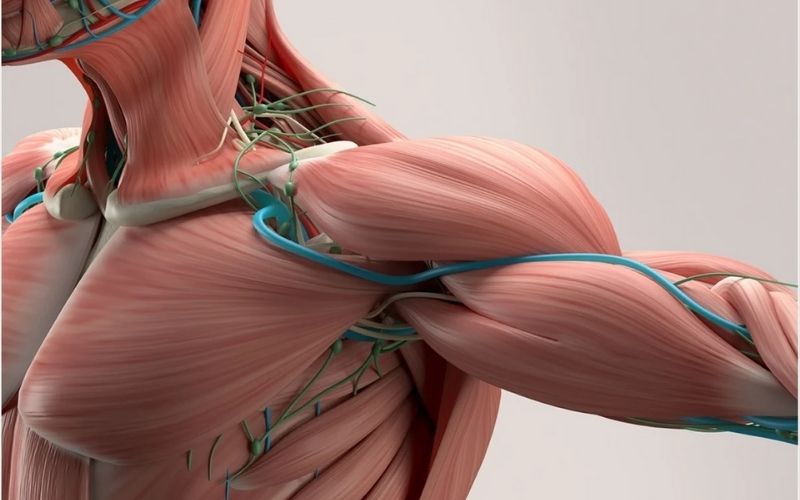
Without iron, muscles can lose strength and elasticity.
Iron is also a component of myoglobin, a small, oxygen-binding protein found in the heart and skeletal muscles. It delivers oxygen to muscle cells, allowing them to produce the energy needed for muscle contraction.
Our bodies need iron to build strong, lean muscles. Adequate iron intake helps keep your muscles strong and elastic. Low iron levels can slow muscle recovery, leading to soreness.
Without iron, muscles can lose strength and elasticity; muscle weakness can prevent you from reaching your maximum performance.
Iron helps boost your immune system
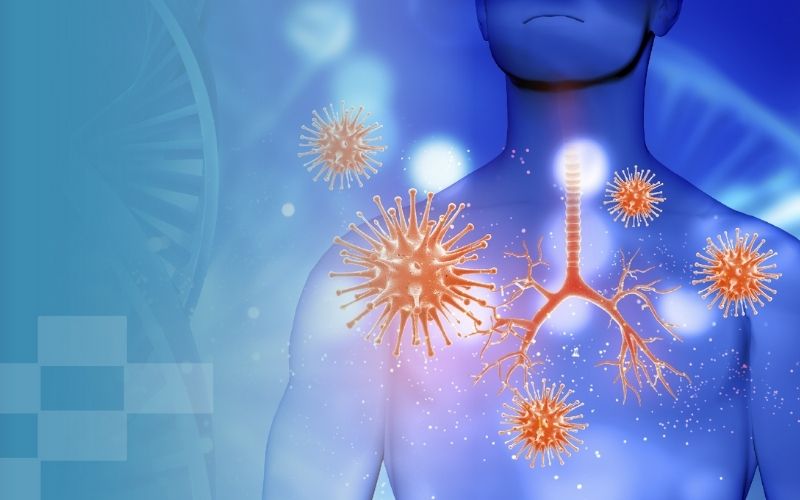
The right amount of iron will help your immune system function properly.
Iron plays an important role in the immune system. Iron deficiency will reduce the ability of non-specific immunity, which is the first line of defense of your body against pathogens. Providing enough iron for your body will help your immune system function well.
Iron deficiency reduces the production of white blood cells (T-Lymphocytes) causing immunodeficiency. These cells play a role in fighting against bacterial attacks.
3. How to use and dosage of iron
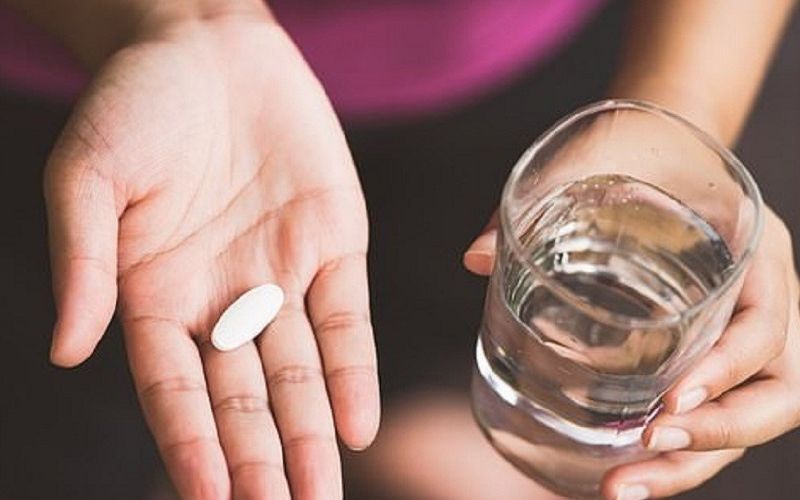
Iron can be supplemented through iron-containing supplements.
Iron can be supplemented through daily diet with iron-rich foods such as beef, fish, egg yolks, etc. However, there are some subjects who can still easily lack iron and need to supplement orally such as:
– Vegetarians who do not eat meat, poultry or seafood need to supplement almost twice the amount of iron as meat eaters because the body has poor absorption of nonheme iron in plant foods.
– Women during their menstrual cycle or pregnant women need to supplement iron for the body, preferably both forms of iron supplementation from foods rich in iron and blood tonics.
– People with poor iron absorption due to illness or due to taking medications that affect iron absorption also need to supplement iron.
Iron tablets are usually taken 1 hour before meals or 2 hours after meals, because iron is best absorbed on an empty stomach. Calcium should not be taken with iron because calcium interferes with iron absorption. Your body absorbs iron from plant sources better if you eat it with meat, poultry, seafood, and foods containing vitamin C.
The amount of iron you need each day depends on your age and gender. You should consult your doctor before taking iron supplements to avoid the risks of iron.
4. Side effects of using iron

Iron may cause stomach and intestinal side effects such as stomach pain, nausea and vomiting.
Iron is safe for most people when taken by mouth in appropriate doses. However, high doses of iron can cause side effects in the body, and overdose can cause poisoning and be life-threatening. Risks of iron use include:
– High doses of iron can cause stomach and intestinal side effects such as abdominal pain, nausea and vomiting and can even cause premature birth in some women. Higher doses of iron can cause high levels of hemoglobin in the blood.
– Iron poisoning can cause many serious problems including stomach and intestinal pain, liver failure, dangerously low blood pressure and death. If you suspect someone has iron poisoning, call your nearest health department immediately for advice on how to handle it. Iron poisoning is also one of the common causes of poisoning deaths in children.
– Taking iron can cause iron overdose in people with Hemoglobin E (hemoglobin disease). If you have hemoglobin disease, do not take iron unless directed by your doctor.
– Liquid iron supplements can darken teeth.
– In addition, iron can interact to reduce the bioavailability of some drugs when used together such as Tetracycline antibiotics, Quinolone antibiotics, Bisphosphonates, Levodopa, Levothyroxine, Methyldopa.. If you intend to take iron supplements while taking these drugs, you should consult your doctor.
5. Foods rich in iron
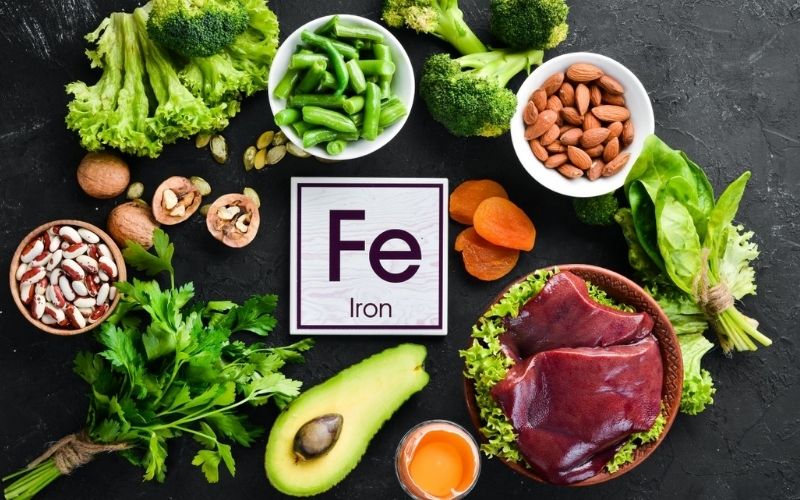
Foods containing Iron
Iron is found naturally in many foods and is added to some dietary supplements. You can get your iron intake by eating a variety of foods, including:
– Iron-fortified breads and breakfast cereals.
– Lean meats, seafood, and poultry.
– White beans, lentils, spinach, and peas.
– Nuts and some dried fruits, such as raisins.
Eat a variety of foods, especially iron-rich foods, so your body can get enough of this essential mineral.
Hopefully, through the above article, you can better understand the effects of iron. In addition, you can rely on your nutritional menu to supplement iron from dietary supplements by consulting a doctor.





